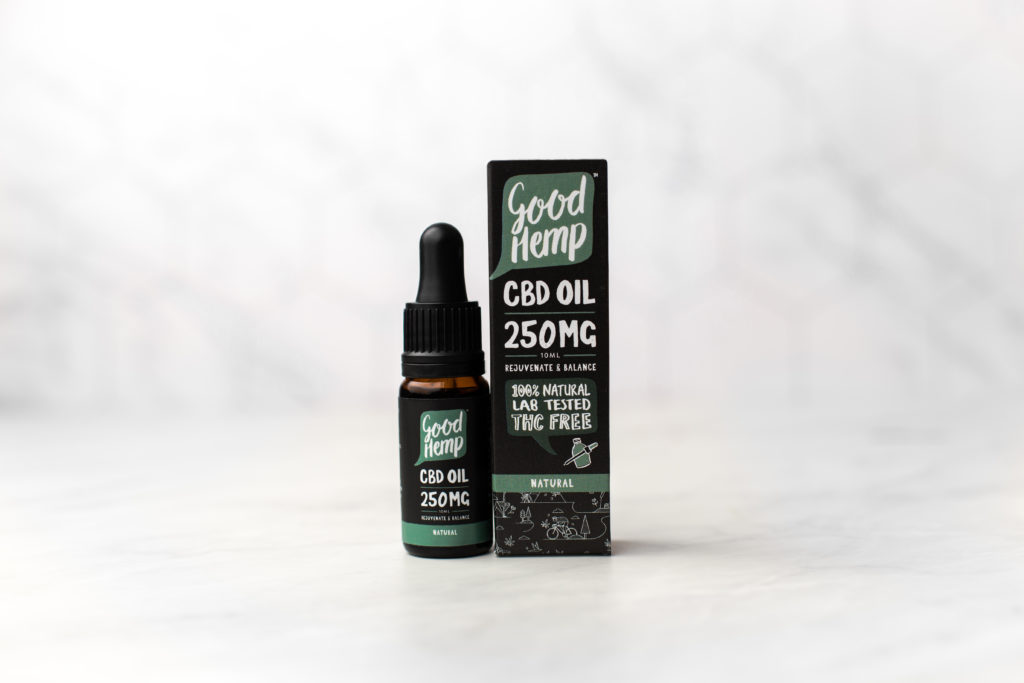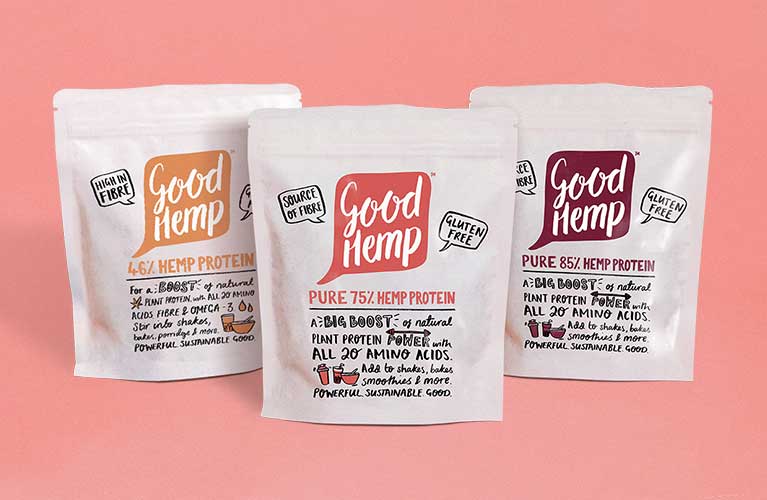10 Self-Care Tips to Prevent Burnout in 2021
Whether you’re a teacher, caregiver, doctor, nurse or office employee, 2020 must have been a tough year for you. Experts are anticipating a spike in employee burnout in January 2021, and with it, a rise in concerns from company managers about the wellbeing of their staff.
Here at Good Hemp, we want to help you manage the prolonged pressure at work. Whether you’re struggling with remote working, overwhelmed in your key worker role, or simply need some time-out from feeling flustered, we’ve rounded up 10 self-care tips for positive mental health.
What Is Burnout?
According to HelpGuide.org, burnout is a state of emotional, physical, and mental exhaustion caused by excessive or prolonged stress. It usually rears its ugly head when you’re feeling particularly overwhelmed, exhausted or underappreciated – leading to a complete disinterest in the general task at hand.
A study from January 2020 revealed that online searches for “burnout symptoms” had increased by 24% that year alone, reaching 12,100 searches in one month. In August 2020, 47% of managers raised concerns that employee burnout may rise due to added COVID-19 stress. While unfortunately the current climate remains very much the same today in 2021, how can we be sure that what we’re experiencing is burnout, and not simply a little additional stress?
How to Spot the Signs of Burnout
While burnout is the result of unrelenting stress, it’s not the same as simply feeling ‘stressed’. It buries itself a little deeper than that. Stress is often caused by a multitude of demands or tasks that pile up on top of you, resulting in the feeling of being out of control – like spinning plates you have to keep in motion. Generally, the idea is that once you regain control, you’ll feel much better. Burnout leaves you feeling empty, lacking motivation entirely and as though you have nothing left to give – and not everybody notices it straight away.
If you recognise some of these symptoms in yourself, we’ve listed a few tell-tale signs that you could be on the bumpy road to burnout, below:
- Exhaustion
- Insomnia
- Frequent illness
- Headaches
- Muscle pain
- Loss of appetite
- Anxiety
- Feeling angry or irritable
- Isolating from others
- Procrastination
- Unable to “switch off”
Tips For Avoiding Burnout
If you’ve found yourself virtually ticking off most of the above points, don’t panic, there’s a whole host of things you can do to avoid or reduce the symptoms of burnout.
1. Do Morning Stretches
If you’re close to experiencing burnout, then there are most likely days when it’s a miracle you even get out of bed at all, so the idea of morning stretches seems borderline ridiculous. But hear us out. Exercise is known to not only increase your physical wellbeing, but decrease psychological distress and emotional exhaustion too, giving you more energy and extra room for productivity. A few minutes of simple morning stretching can improve your mood ten-fold. Go on, try it.

2. Schedule In Short Walks
If you’re feeling up to a little more than stretching, why not schedule some time in your day to go for a short walk? Natural spaces have been considered beneficial to your health for many years, so taking your activity outdoors brings even more benefits with it. ‘Green exercise’ (or outdoor exercise in a green environment) is said to have the biggest impact on mental health when compared to indoor activity. The natural environment has attention restoration properties (ART), which means you can benefit from improved focus and concentration after exposure to nature – areas in which you may particularly struggle while experiencing burnout. In addition, heading for the great outdoors appears to lower blood pressure, reduce stress, improve self-esteem and boost your mood.
Time to invest in a waterproof jacket!

3. Take CBD Oil
A perfect time to plug some of our amazing products, right?! We’re not gloating for no reason here – if you’re a Good Hemp fan (which we sincerely hope you are) then you’ll know that CBD oil is best-known for its calming properties that help with anxiety, stress, concentration and sleeping problems – all of which are linked to burnout. If you’re trying CBD oil for the first time, we’ve got the down low on how much CBD to take and how it may affect you.

4. Set A Break Timer
Whether you’re in an office environment or you work from home, it’s important to take regular breaks away from your desk (or sofa, we don’t judge) to stretch, rest your eyes and take a deep breath. Aside from encouraging a big ol’ headache, being fixated on a task for too long can wreak havoc on the mind and body, leaving you feeling tense, disengaged and fatigued.
We recommend downloading the Break Timer app, which regularly reminds you to take some well-deserved microbreaks.
5. Protect Your Work-Life Balance
Adopting a healthy work-life balance is one of the best ways to banish burnout. Whether you’re a full-time employee or a busy freelancer, prioritising time for self-care is key for your mental, physical and emotional health – be it taking a walk during lunch, not working past your allocated hours, or booking annual leave to spend some quality time with family. While not all workers are afforded such luxuries (hospital workers, we see you), we recommend that you flag it early with your manager if you’re feeling overwhelmed in your job and ask for support.
Failing that, pack your bags and head for Sweden?
6. Practice Saying No
If you’re a yes person, now might be the time to change your tune. If you’re partial to taking on requests that are sure to double your workload in order not to appear rude or unhelpful (we’ve all been there), you must now learn to say “no”. Limiting the number of tasks you adopt and delegating where possible can help you avoid burnout – and by setting a good example in managing your energy, you can inspire others to do the same! Don’t overextend yourself.

7. Connect
You’ve heard the saying: a problem shared is a problem halved. Burnout can be isolating and you may have to resist the urge to withdraw, but whether you bite the bullet and contact a therapist or seek comfort in a close friend or family member, talking face-to-face with a good listener is one of the fastest ways to calm your nervous system and relieve stress. If that’s not possible, why not try an online support group, or even a Zoom call with a friend or colleague?
8. Eat Food That Improves Your Mood
A poor diet can have a major impact on a person’s mood. Your body runs off whatever you fuel it with, and while a 12” pizza is pretty damn tasty and a healthy choice for the soul (in our humble opinion), you won’t be bursting with energy afterwards. Swap feeling sluggish for being full of beans
when you learn about the food you need to change your mood in our tasty guide from nutritional therapist Grace Kingswell.
Short on time? Our wide-variety of hemp protein powders are also on hand to support a well-balanced life, being full of good nutrients like fibre, omega-3 and all the essential amino acids. Whether you throw a scoop in a protein smoothie or get creative with indulgent high-protein bakes, it’s the best medicine for a happier, healthier you.

9. Hydrate
Without stating the obvious, water is essential for optimal functioning of the body. If we’re talking science, the human body is roughly 70% water and our brains approximately 85%, so it comes as no surprise that if we give H2O the backhand, it’ll cause us all sorts of problems – from headaches to fatigue and, you’ve guessed it, stress.
In fact, did you know that drinking water helps balance the cortisol levels in your brain? Even when you’re mildly dehydrated, your cortisol levels (a.k.a the body’s stress hormone) increase – so, essentially, you can sip away your stresses.
Please note: this will not work with coffee and/or fizzy drinks.
10. Meditate
Discovering relaxation methods that work for you is a great way to alleviate symptoms of burnout. Recent studies show a clear link between meditation and stress reduction, and the best part is, there are plenty of ways in which you can practice (and they can take no more than 5 minutes). We recommend Meditation apps like Headspace, Calm, Buddhify and Insight.
Meditation isn’t for everyone, so if you’re struggling to find your zen, don’t worry. A similar meditation method you may recognise is yoga. In fact, the power of yoga for mental health is said to be so great, that a recent US study has crowned the ancient form of exercise almost as effective as talking to a therapist, with some UK yoga experts even calling on the NHS to clinically prescribe it to anxiety patients. So we’re thinking it’s a pretty good bet.
Perhaps refrain from performing any downward dogs in the office though…


